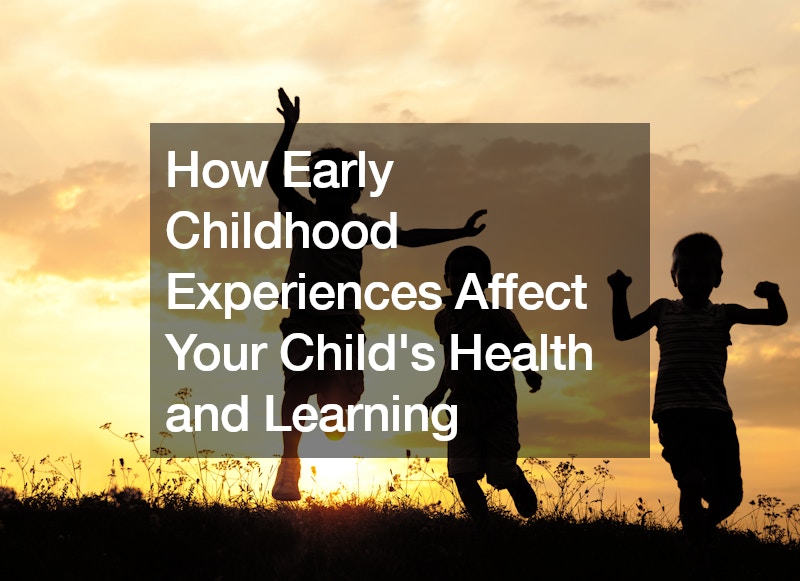Introduction
Early childhood experiences play a pivotal role in shaping a child’s overall health and learning abilities. From the moment they are born, children’s brains are rapidly developing, influenced by the environment around them. This article explores the profound impact of early experiences on a child’s lifelong well-being, emphasizing the importance of nurturing environments and supportive policies.
The Brain-Body Connection
The brain serves as the control center for the body, managing responses to stress and threats. When a child experiences stress, whether it’s from environmental factors or adverse experiences, their entire body goes into overdrive.
The brain signals other bodily systems, such as the cardiovascular and immune systems, to respond accordingly. Chronic stress during early childhood can have lasting effects on physical and mental health, increasing the risk of diseases like cardiovascular disease, diabetes, and depression later in life.
Early Learning and Health Promotion
Early childhood experiences are not just about learning ABCs and 123s; they are also crucial for promoting lifelong health. Building strong relationships, developing essential skills, and reducing sources of stress are foundational principles that contribute to both learning readiness and long-term health. Preschools, with their focus on social-emotional development and early academic skills, play a vital role in laying this groundwork for children.
Importance of Early Nutrition
Early nutrition plays a vital role in shaping a child’s health and development. During the first years of life, proper nutrition is essential for optimal brain growth and function. Breastfeeding, in particular, provides infants with essential nutrients and antibodies that support healthy brain development and immune function. Additionally, introducing a variety of nutrient-rich foods during early childhood lays the foundation for lifelong healthy eating habits. A balanced diet that includes fruits, vegetables, whole grains, lean proteins, and healthy fats promotes physical growth, cognitive development, and overall well-being.
Addressing Adversity
Children growing up in adverse environments, such as poverty, discrimination, or exposure to violence, face heightened levels of stress and hardship. These adversities can have detrimental effects on their physical and mental well-being. It’s essential to address systemic issues that contribute to these challenges and provide support to families in need. By tackling root causes and implementing supportive policies, we can create environments that foster resilience and promote health equity.
The Role of Pediatric Primary Care
Pediatric primary care serves as a frontline opportunity to engage with families and support healthy development from the earliest stages. By providing regular check-ups, screenings, and guidance on nutrition and development, pediatricians play a vital role in promoting children’s well-being. Additionally, pediatric primary care can serve as a gateway to connect families with necessary resources and services, including early intervention programs and mental health support.
Social-Emotional Development
Nurturing positive social-emotional development in early childhood is crucial for building strong relationships, managing emotions, and developing resilience. Children thrive in environments where they feel safe, loved, and supported by caring adults. Positive interactions with parents, caregivers, and peers foster emotional intelligence and social skills, setting the stage for healthy relationships later in life. Creating opportunities for play, exploration, and self-expression helps children develop confidence, empathy, and problem-solving abilities.
Access to Quality Early Education
Access to high-quality early childhood education programs is essential for promoting school readiness and academic success. Quality preschools provide stimulating environments where children can engage in age-appropriate activities that support cognitive, social, and emotional development. These programs often offer structured learning experiences, exposure to literacy and numeracy concepts, and opportunities for creative expression. However, disparities in access to early education persist, particularly among low-income and marginalized communities. Ensuring equitable access to quality preschools is critical for narrowing the achievement gap and promoting educational equity for all children.
Parental Engagement and Support
Parental engagement plays a pivotal role in shaping children’s early experiences and fostering healthy development. Parents and caregivers serve as their child’s first teachers, providing love, guidance, and support during the formative years. Engaging in activities such as reading, singing, and playing together strengthens the parent-child bond and promotes language development, literacy skills, and cognitive growth. Additionally, providing a nurturing and responsive caregiving environment helps children feel secure and confident as they explore the world around them. Parental involvement in early childhood education programs and community resources further enhances children’s learning opportunities and overall well-being.
Building a Holistic Early Childhood Ecosystem
To truly support children’s health and learning, we need to build a holistic early childhood ecosystem that integrates various sectors, including healthcare, education, and social services. By working collaboratively and breaking down silos, we can create seamless pathways for families to access the support they need. This approach involves rethinking traditional models of service delivery and prioritizing the well-being of children and families.
Conclusion
Early childhood experiences have a profound impact on children’s health and learning outcomes. By understanding the critical role of the brain-body connection and addressing sources of adversity, we can create environments that promote resilience and well-being from the earliest stages of life. Through collaborative efforts and supportive policies, we can build a more equitable early childhood ecosystem that sets all children on a path to success.
.

